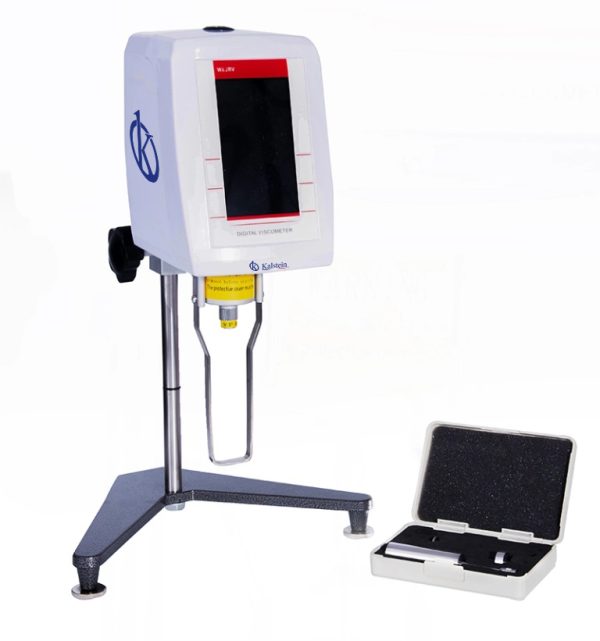Viscosity measurement is a vital process for many products. The ability to accurately measure and control viscosity influences the design and performance of a wide range of applications. This task is accomplished with a variety of instruments, most notably the viscometer, a tool that is indispensable for accurately measuring the viscosity of a substance. Today’s devices come with touch screens, automatic detection systems and temperature sensors, and integrated electronics that increase the reliability of the measurements.
Viscometers have become one of the most important devices for a variety of industries, such as food, petrochemical, pharmaceutical and cosmetics. These instruments are capable of acquiring accurate data on the viscosity of a product, which enables a company to ensure the quality of its products and offer products that meet the required quality standards.
Viscometers offer a simple user interface, which is attractive to users. Most of these devices allow use at different temperatures and have sufficient measuring range to measure the viscosity of even the thickest fluids. They also offer precision regulation that allows much more accurate measurement. Not surprisingly, more and more companies are considering the purchase of a viscometer to monitor production lines.
What are viscometers used for in industry?
Viscometers are used in large-scale food production applications, as well as in pharmaceutical and cosmetic applications. These devices allow users to control manufacturing processes by obtaining reliable results at different viscosity levels. This is vital to ensure product quality and to verify compliance with food safety codes. It also ensures that at least in viscosity, all production batches are within certain values.
Furthermore, these instruments are used in different industries, such as the oil industry, the plastics industry and the ink and paper industry. The use of viscometers provides these industries with accurate data on the viscosity of their products, which facilitates quality control. This is especially important in petroleum environments, where more viscous products allow for improved results at the high pressures required.
In the field of chemical engineering, viscometers are used to measure the viscosity of fluids, which is useful for understanding their properties and predicting how a fluid flow will react to changes in pressure or other factors. This information allows engineers to improve operational efficiency and system performance, reducing the risk of problems during operation while optimizing system performance.
Viscometers as invaluable industry allies
In addition, viscometers are used in many industries to measure the viscosity of non-Newtonian fluids, such as turpentine and molasses, among others. These measurements allow a better understanding of the composition of a fluid and its relationship to the systems in which it is found. This information is key to ensure the successful operation of systems, production lines, container filling, rheological properties, among others.
In short, viscometers provide quality information that is invaluable to many industries. These instruments provide accurate results on the viscosity of a substance, which facilitates the quality control process and the optimization of production processes. If one is to speak of the true importance of viscometers, one must remember that they are an indispensable tool for the proper functioning of many industries.
Kalstein’s contribution to industry
Industries can benefit from viscometers from the manufacturer Kalstein, as they are of great help in standardizing the viscosity of their products. Some of its best-known devices, such as the Brookfield YR05861 // YR05863 Digital Viscometer Rotary Viscosity Tester, are characterized by high accuracy, temperature probes and excellent measurement sensitivity. The sale of our equipment, forms of purchase and prices of the available equipment can be consulted on the web by clicking on the following links HERE and HERE.

